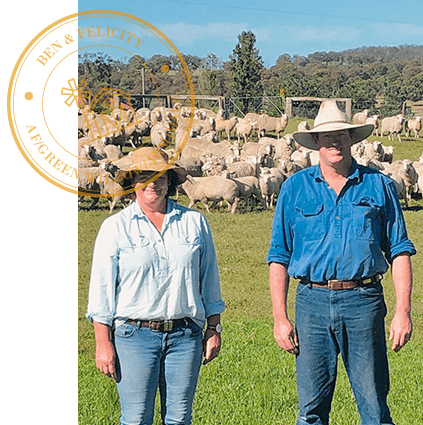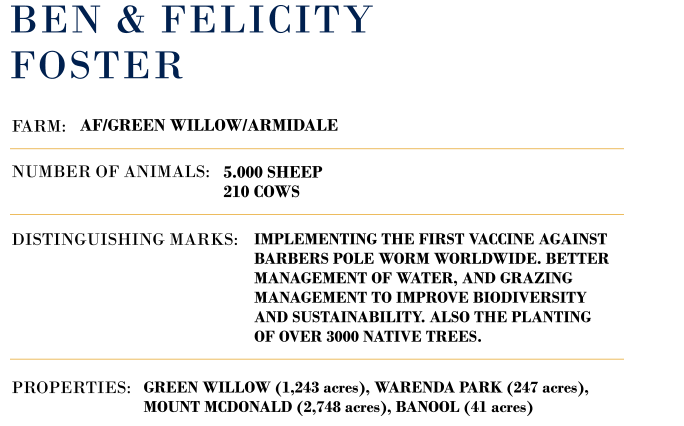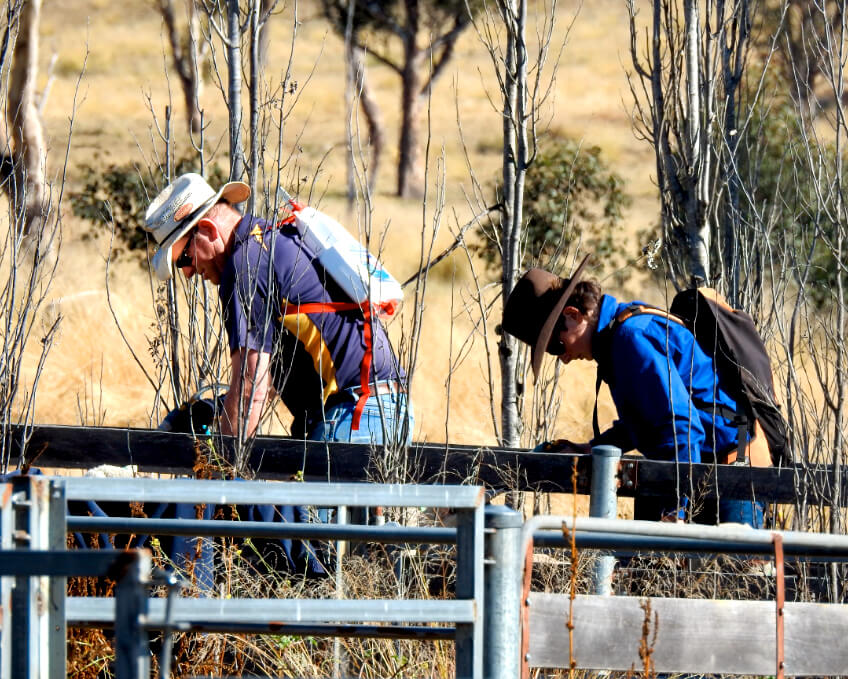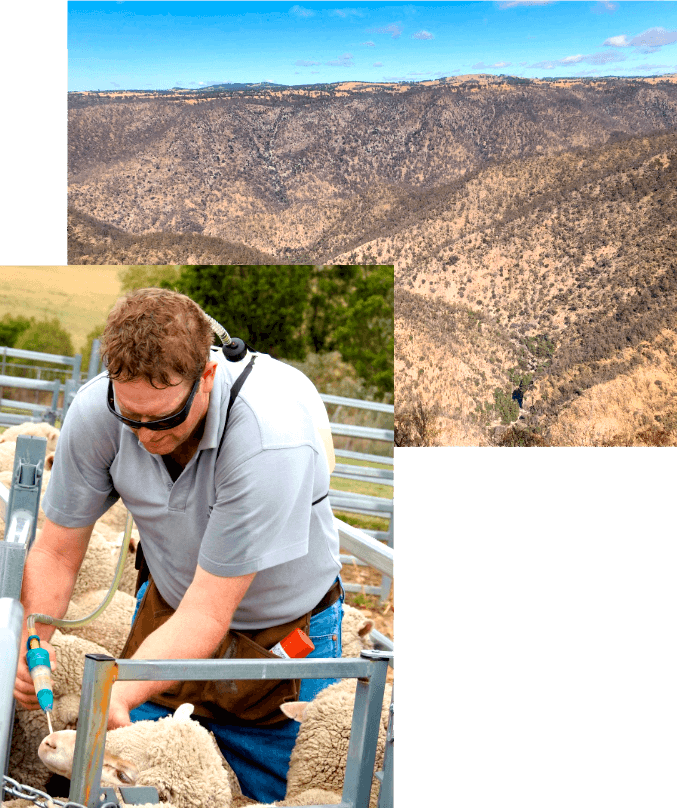


Love and a deep respect for the land, as well as ongoing research to develop technology that supports animal warfare. This is the daily commitment Ben and his wife Felicity have made for years. We are at Green Willow (Armidale) in Australia. This is where Ben and Felicity embarked on their Woolmasters journey in 2014 upon inheriting the family farm. Being the third generation of farmers at Green Willow is something they are deeply proud of, the utmost expression of a passion that has been passed down from father to son. It was Ben’s grandfather who first bought the farm back in 1948. Ever since then, he was shared his passion and enthusiasm to his children and grandchildren, teaching them how to love and embrace a life of sacrifice and immense gratification.
Today, Ben works full time on the farm with the highly essential support of his wife Felicity and their sons Jack and Charlie, who never pass up the chance to help their parents with the animals and the farm at the weekend. This is very much a family affair, with deep respect for the land and its resources, and passion that grows stronger each day with every single achievement and small joy.


Innovation and scientific research play a crucial part on the farm. Beyond his daily tasks, Ben puts his passion and efforts towards animal protection and welfare. His is a genuine mission that involves conducting research and running tests to protect the animals from gastro-intestinal parasites, the number one livestock parasite found on farms. Ben runs these tests on his own, independently, something he has learned thanks to previous work experience at CSIRO and Elders Technical Services.
Over the past 6 years, Ben and Felicity managed to implement the first vaccination program in the world against the number one enemy of all farmers: the intestinal parasite known as Barbers Pole Worm, which causes anemia and certain death in animals. It is a major achievement since this vaccine has allowed the farm to reduce its reliance on chemical means by up to 95%.
Attention and care for the animals also involves better management of the grazing land and biosafety practices. A recent example involves the installation of an innovative Water system that uses water reserves and distributes them for stock drinking water around the whole property even during the drought.

